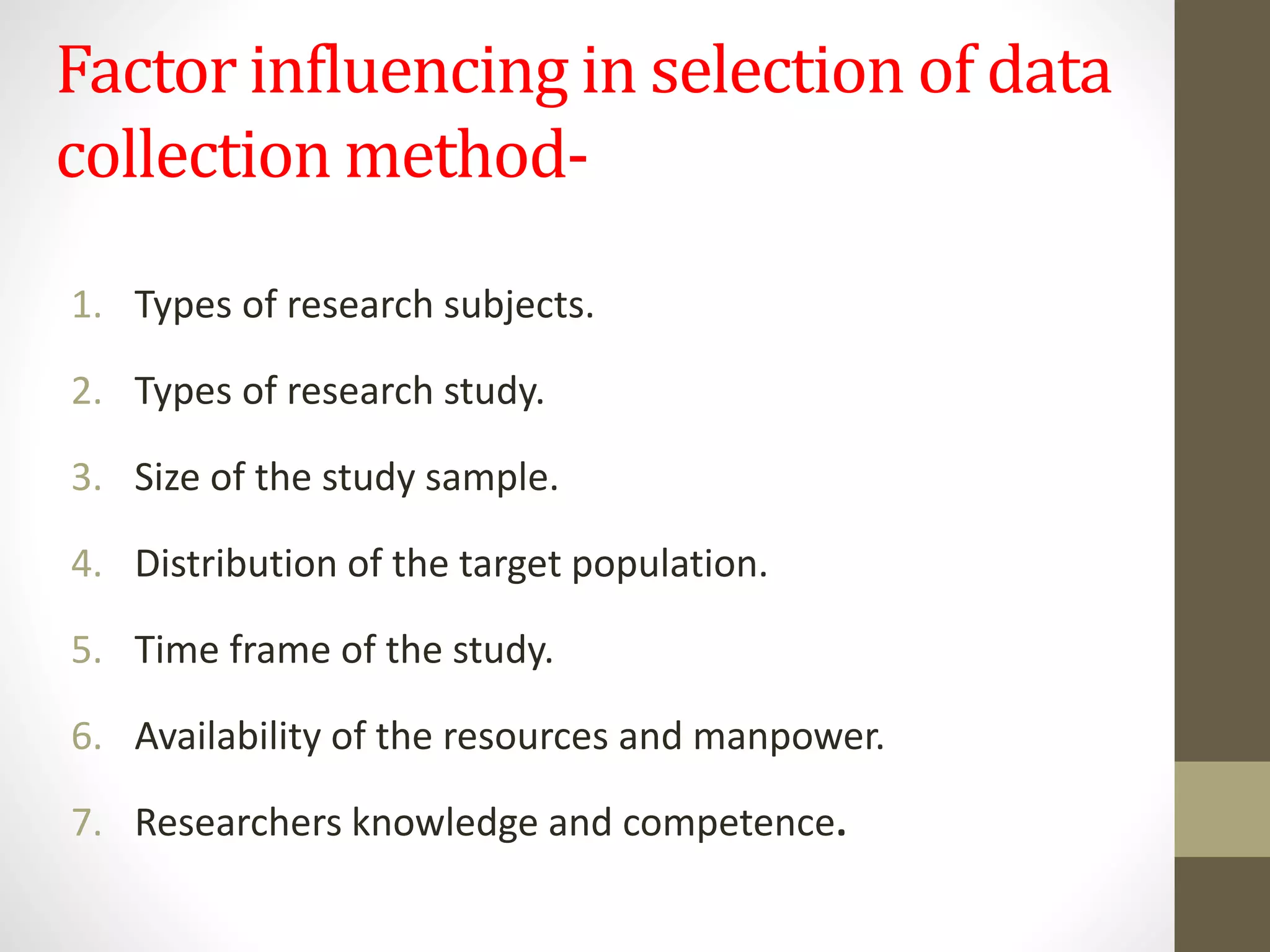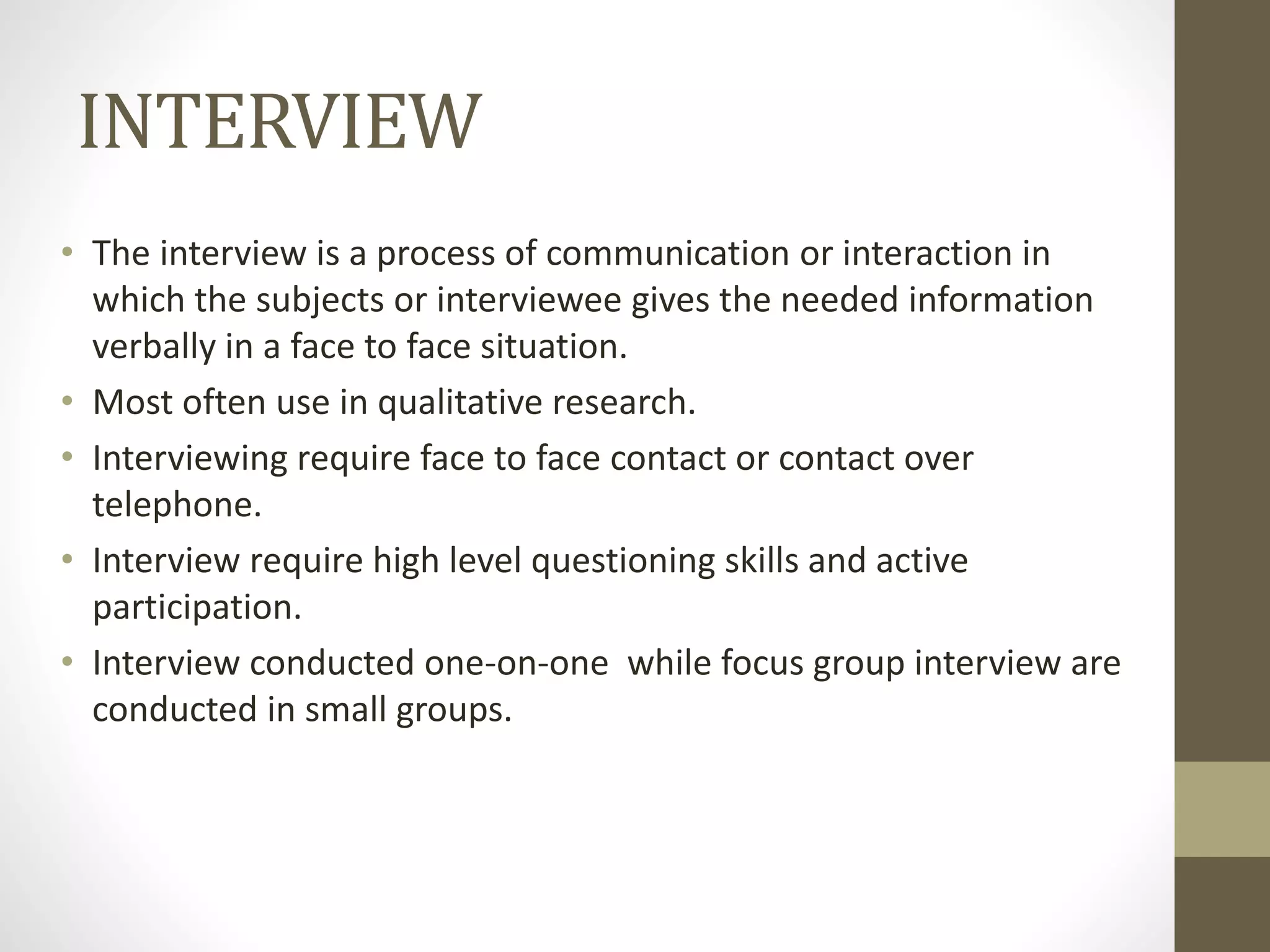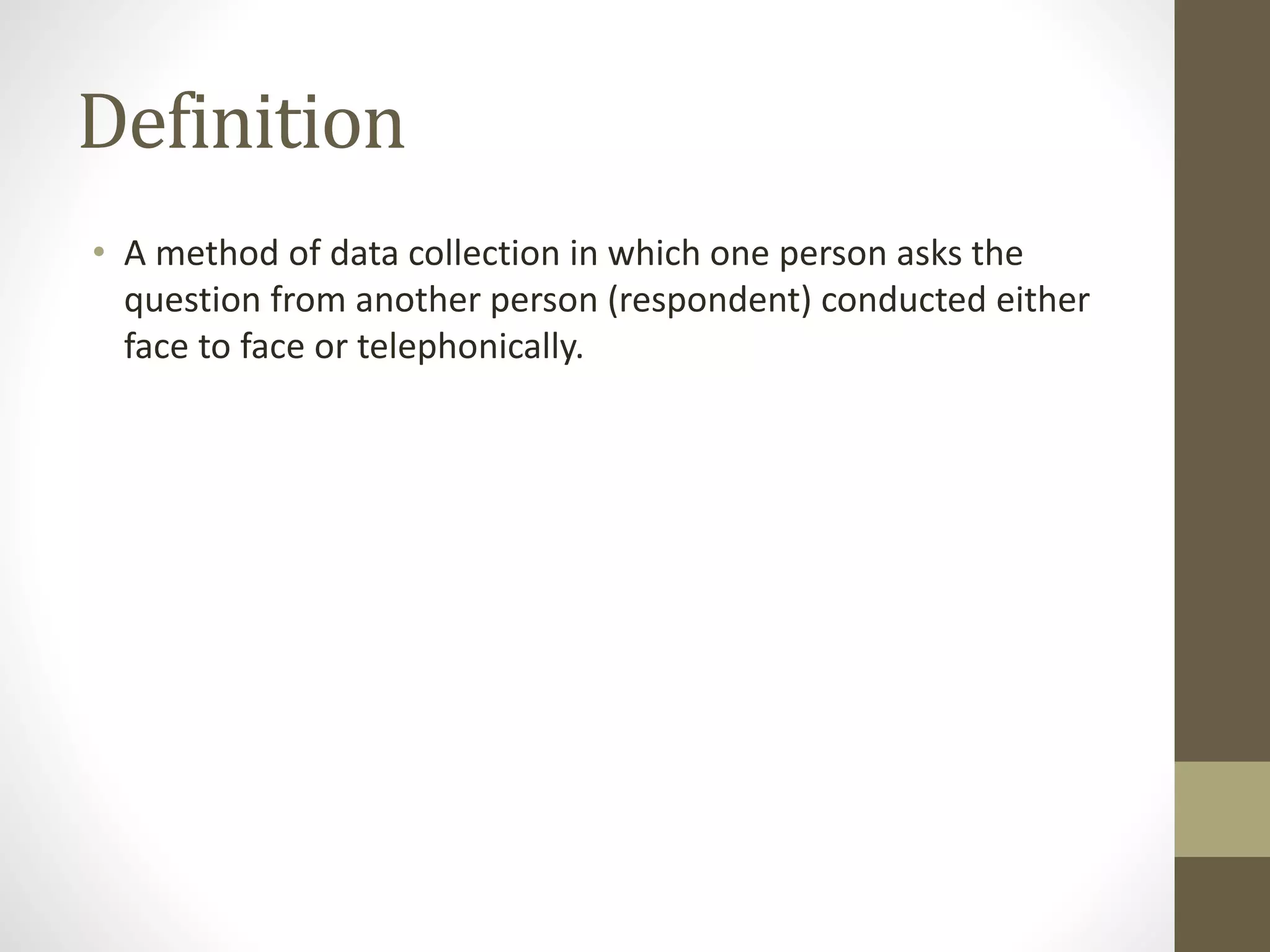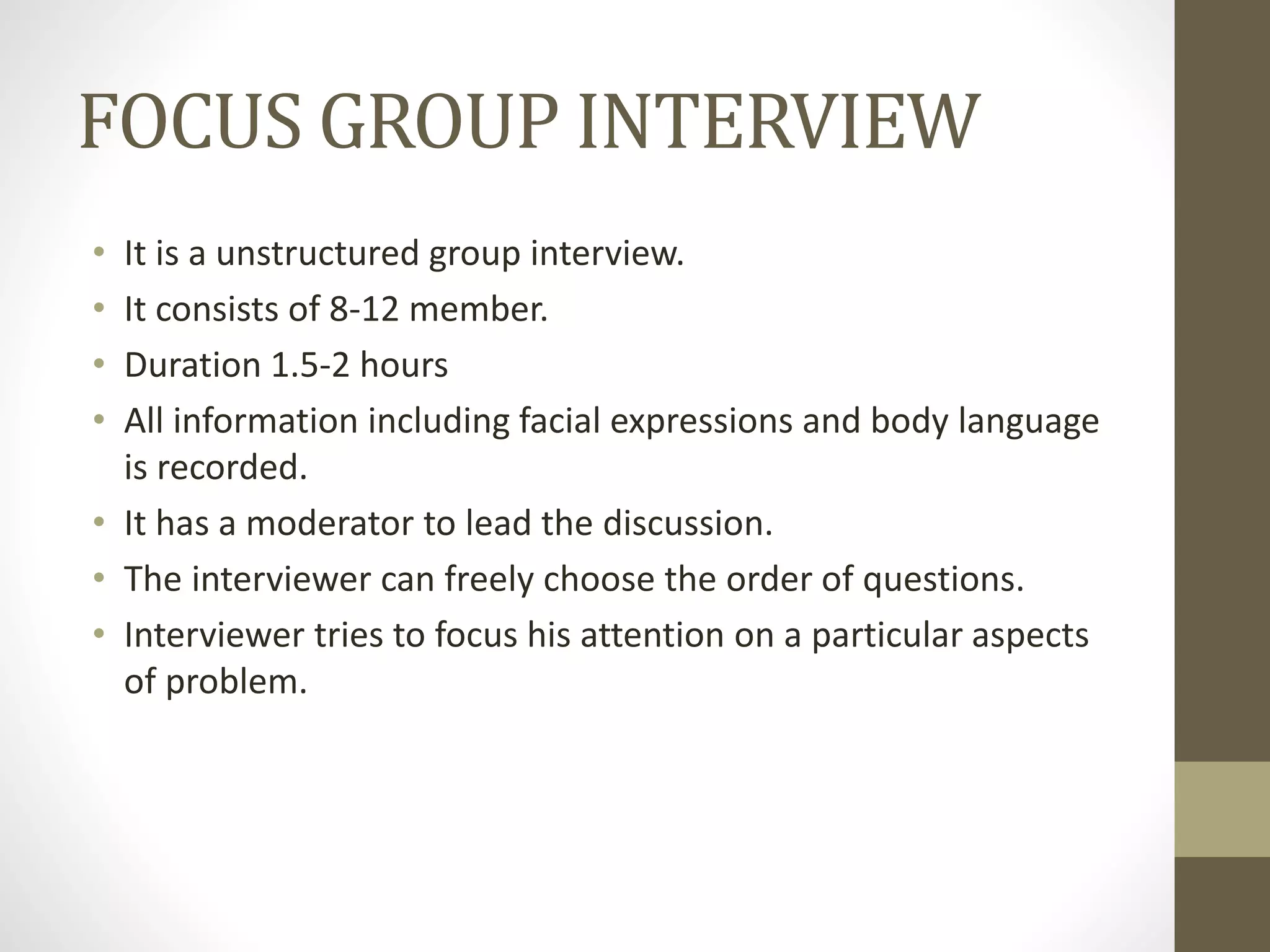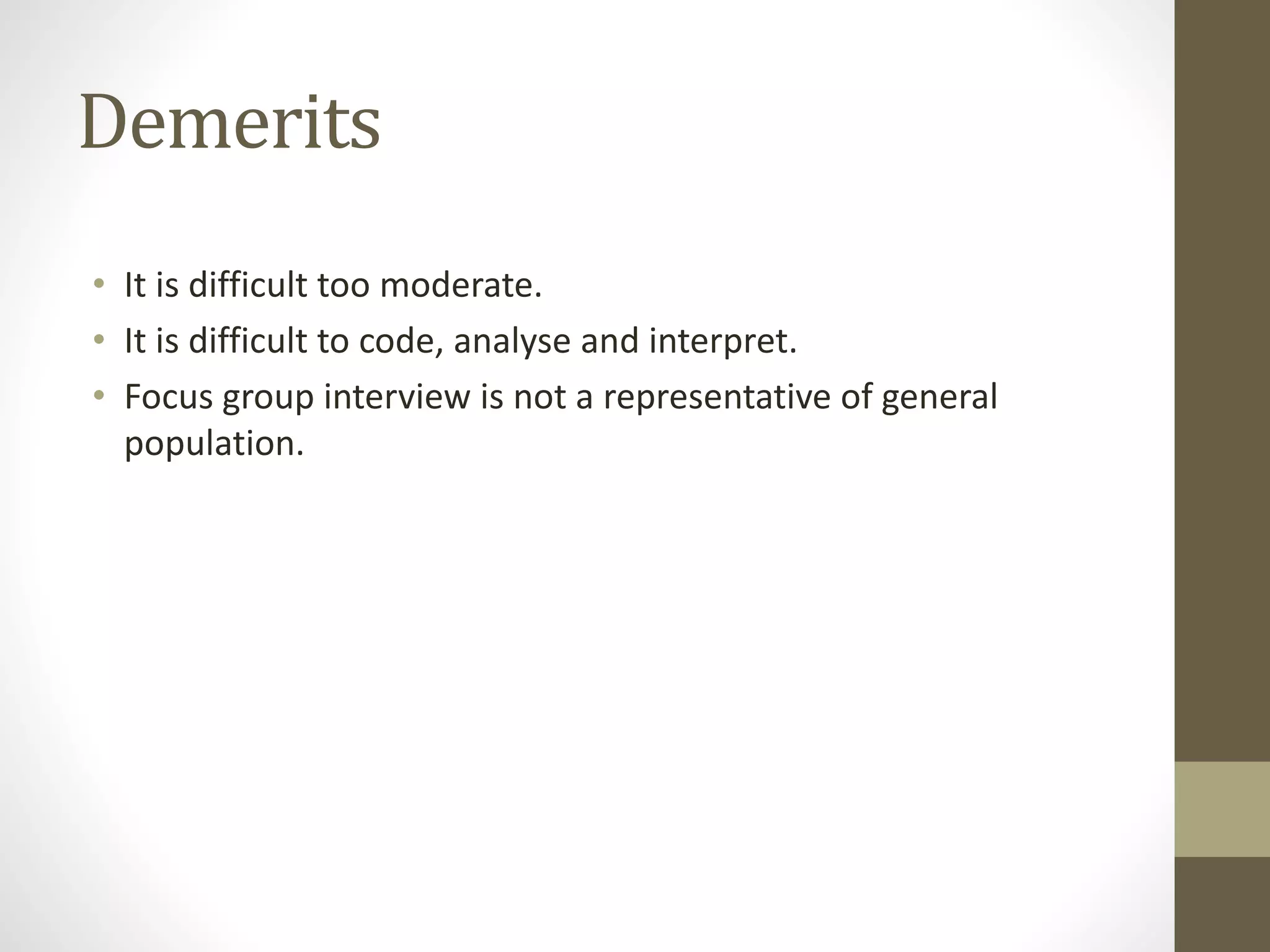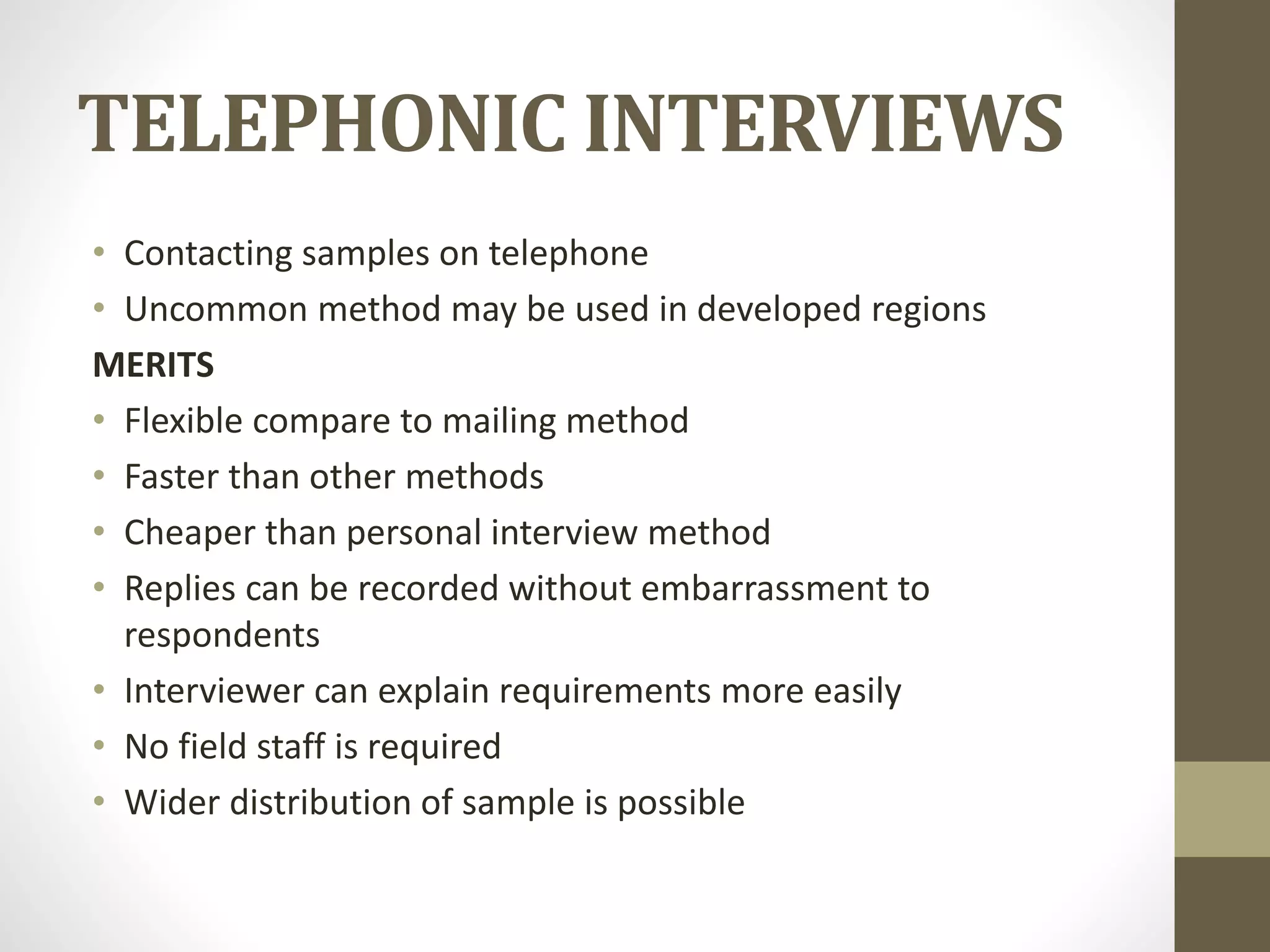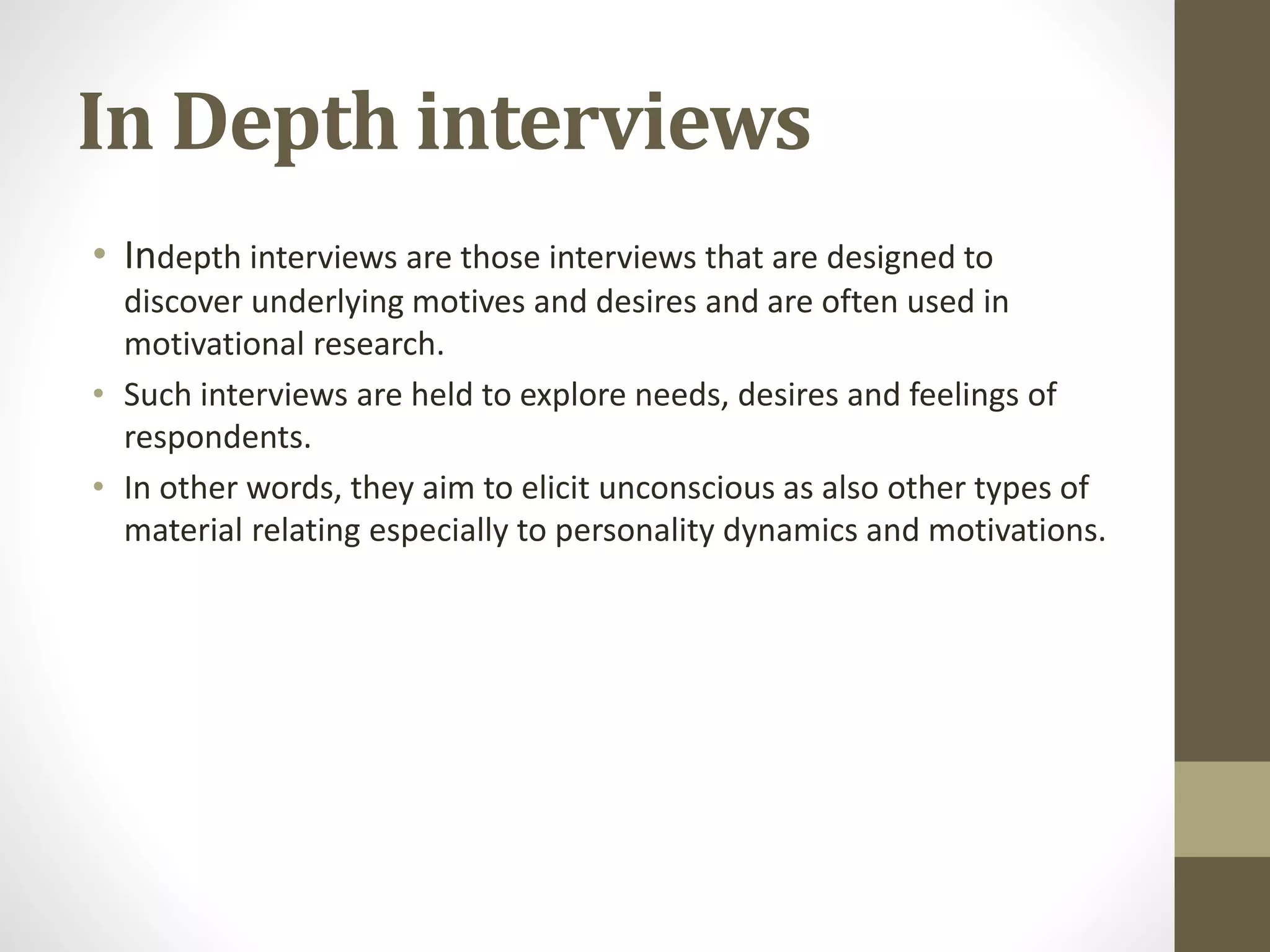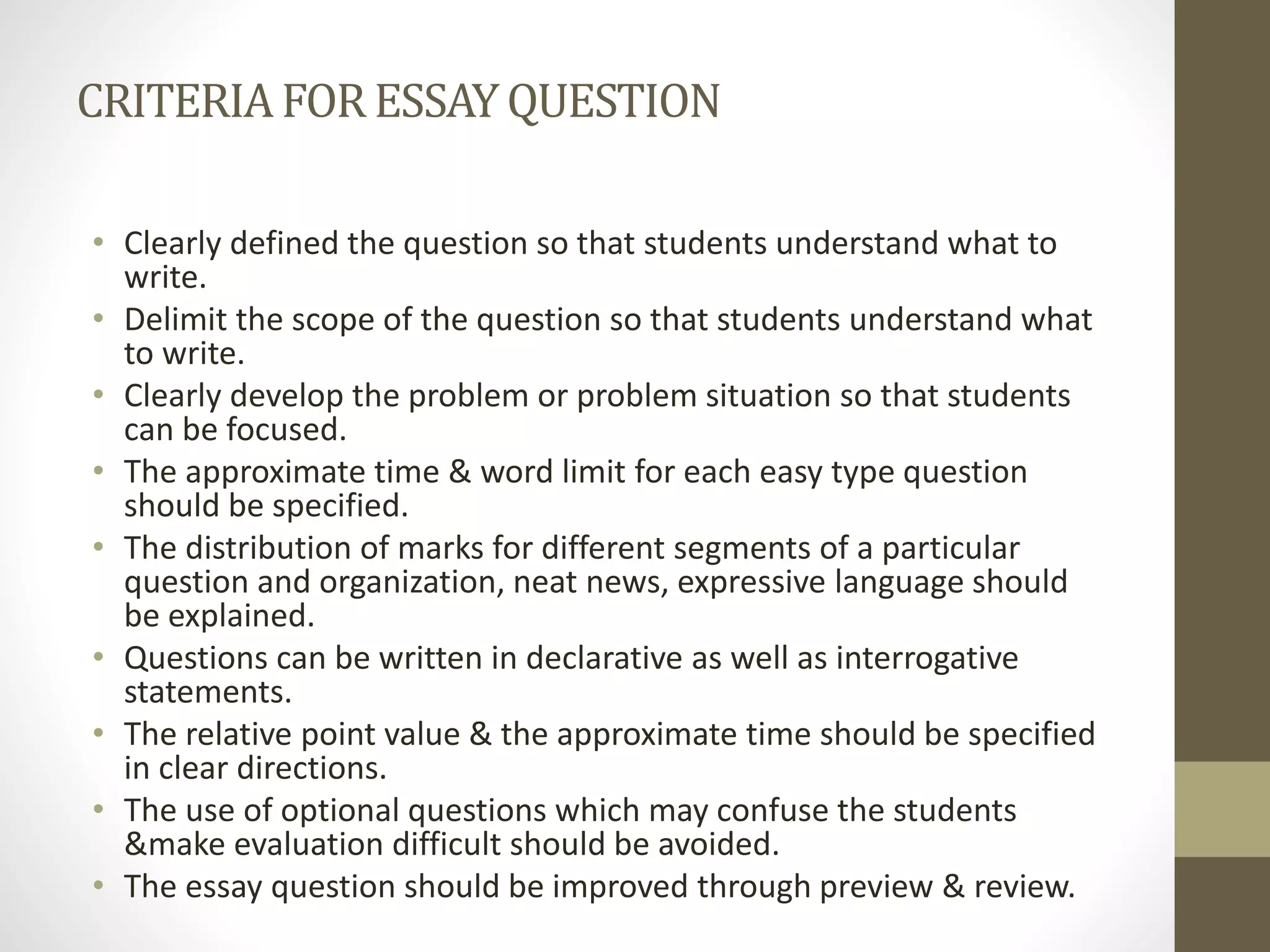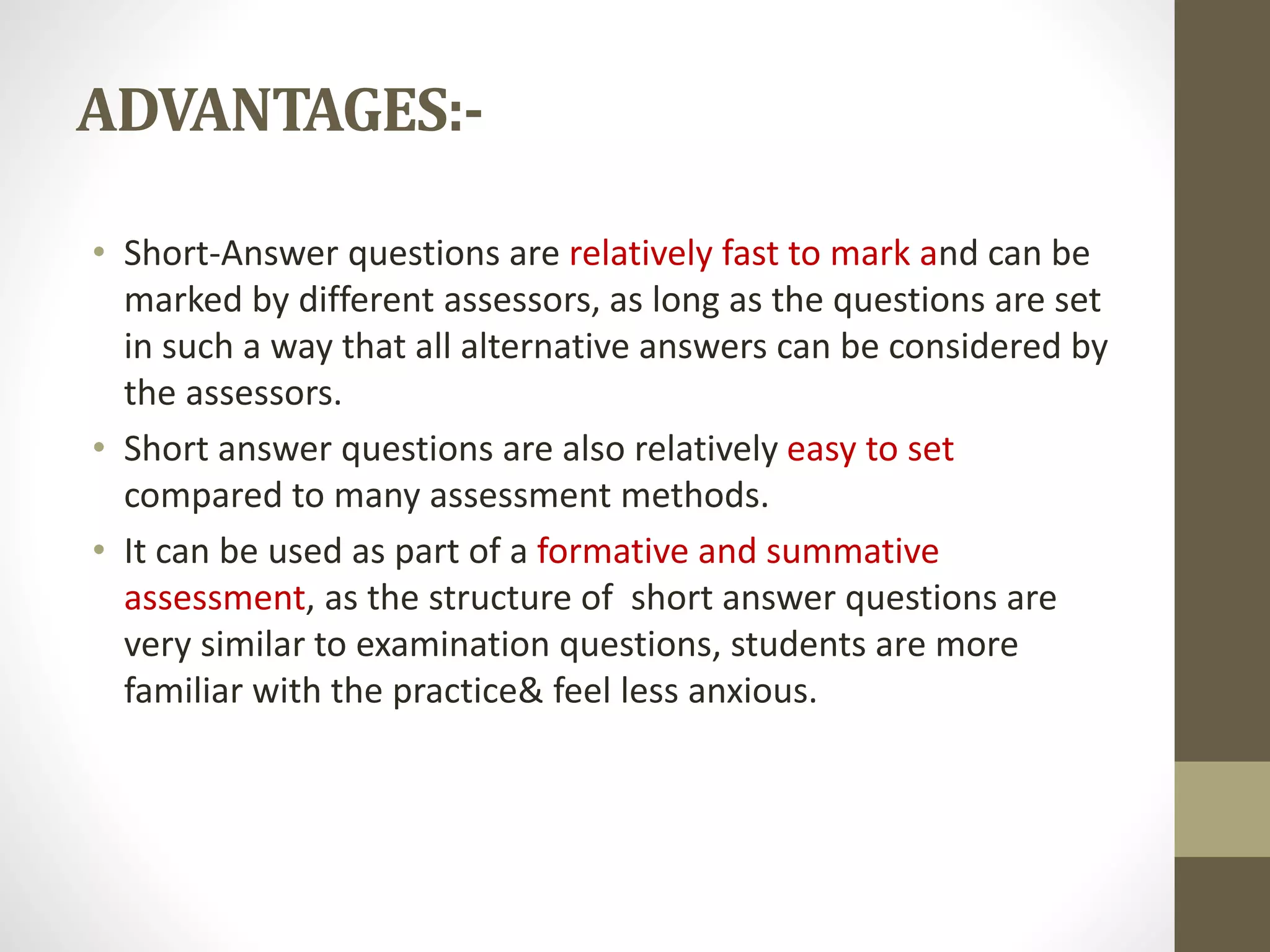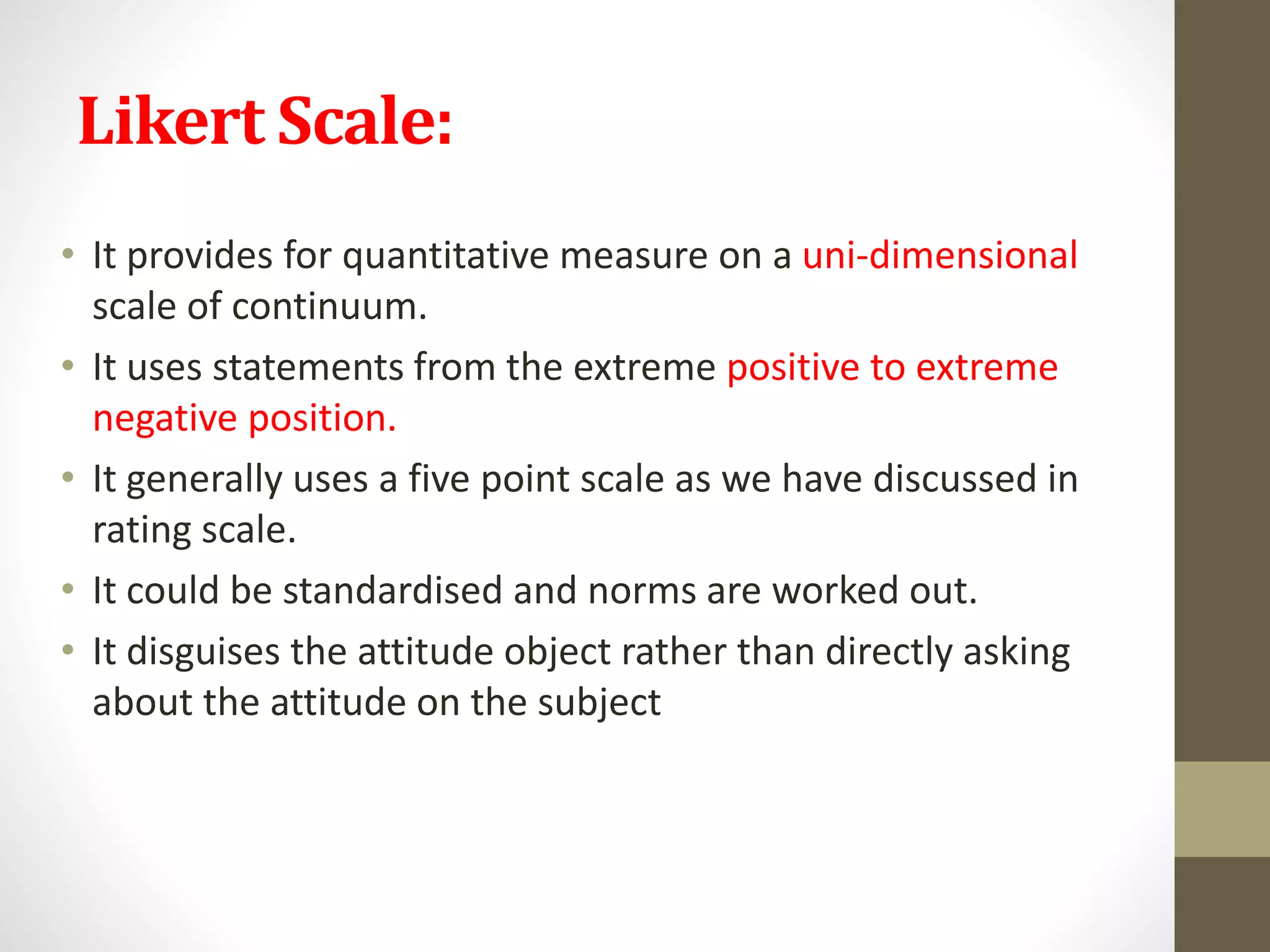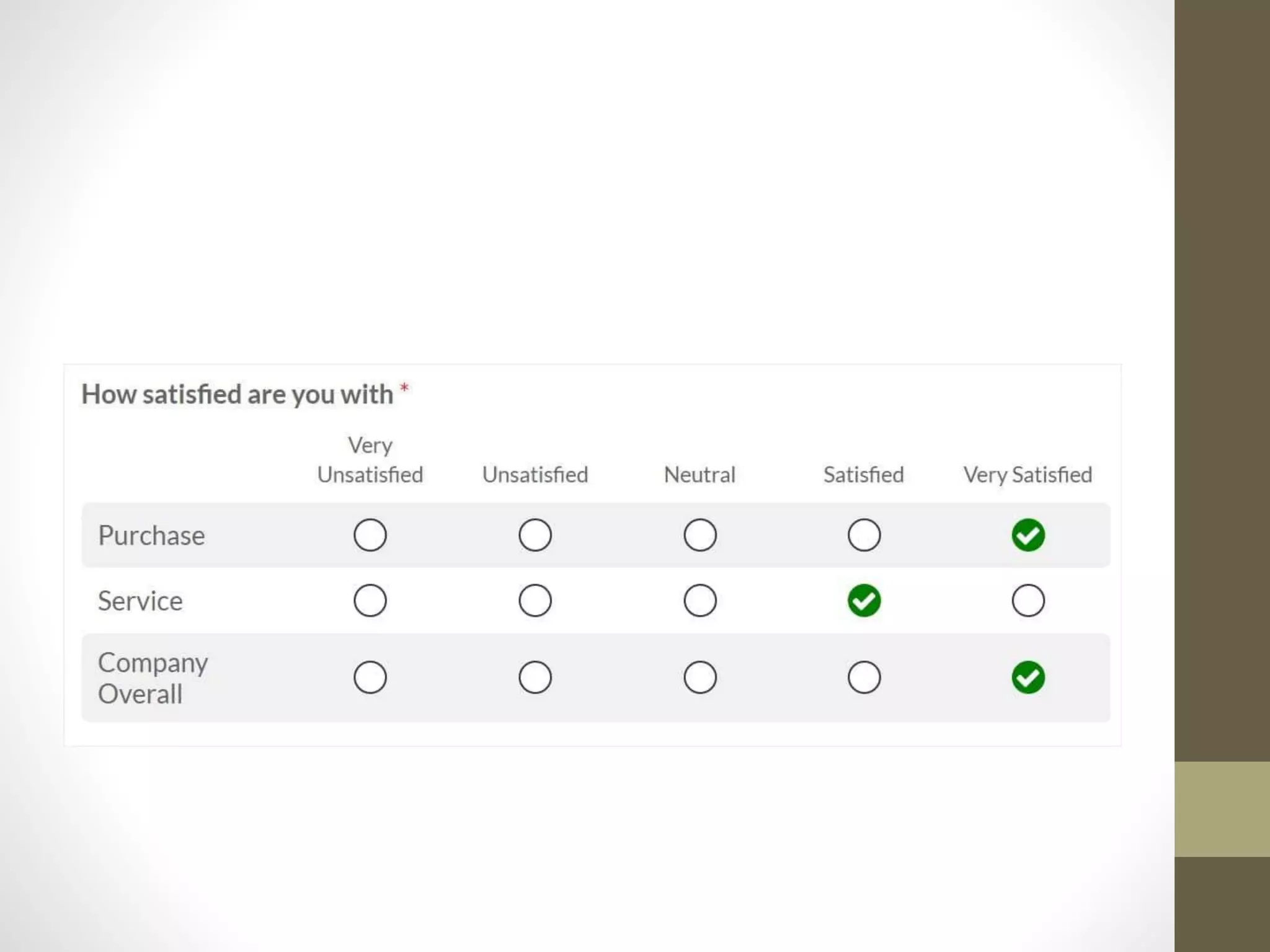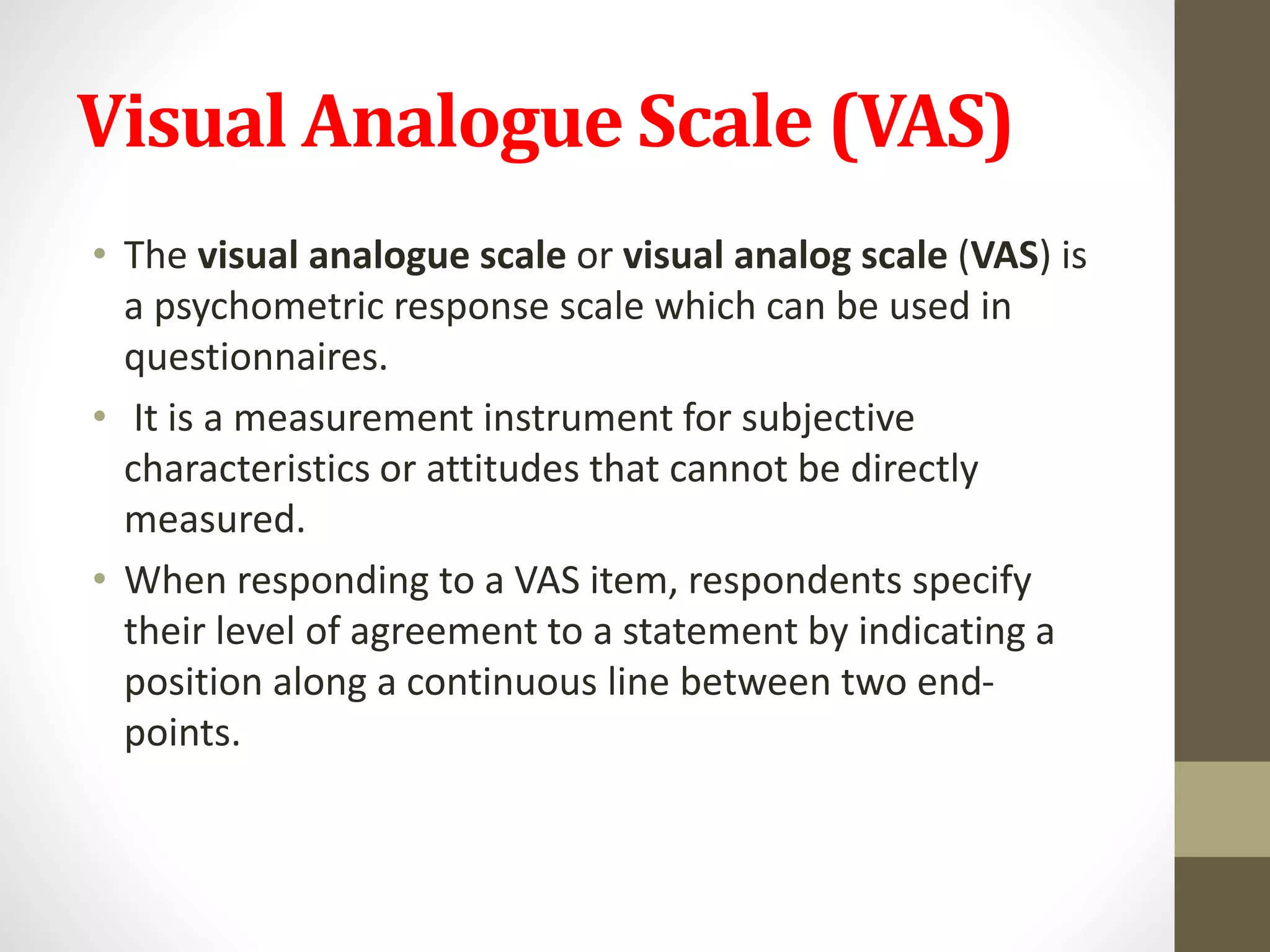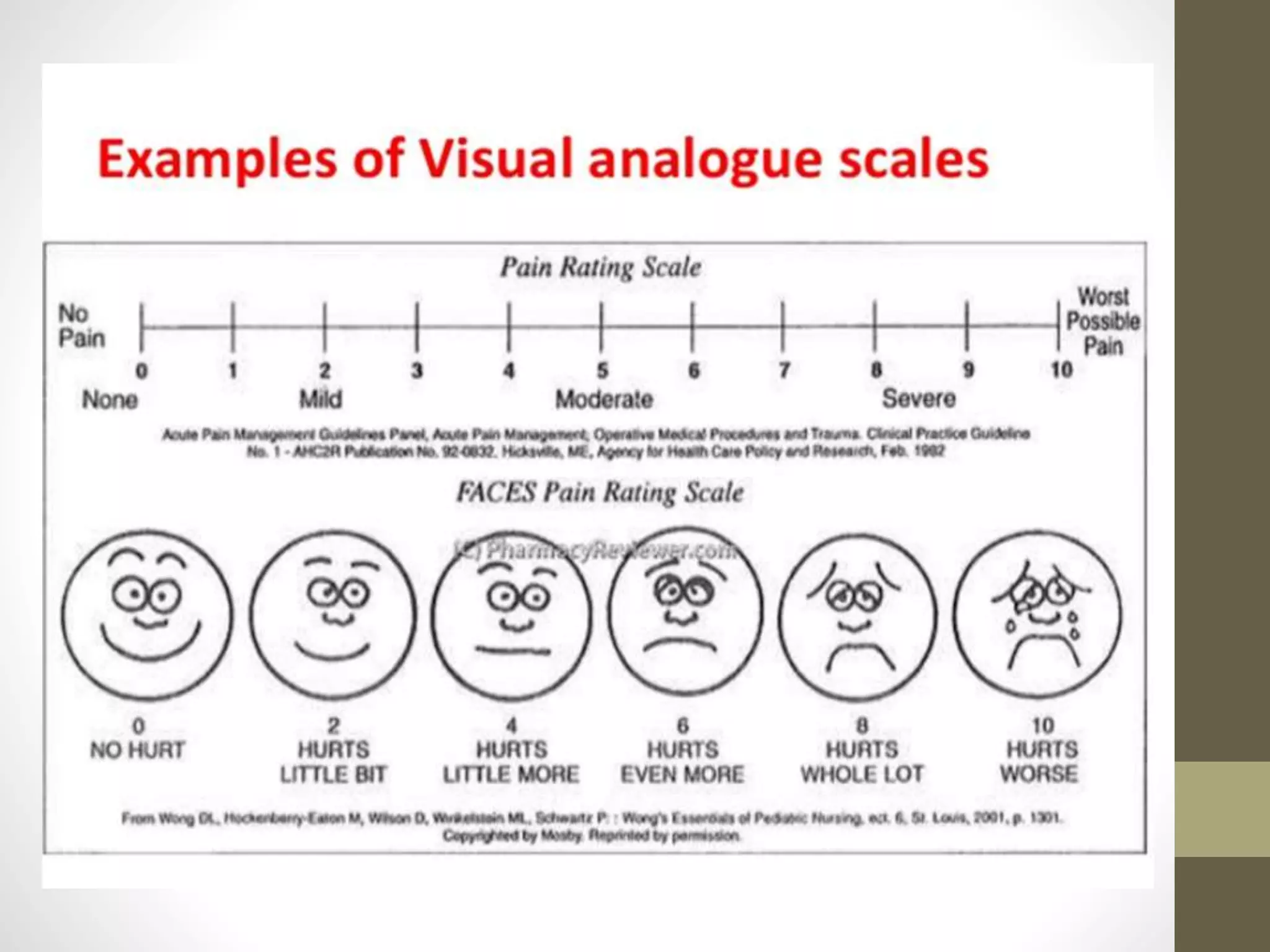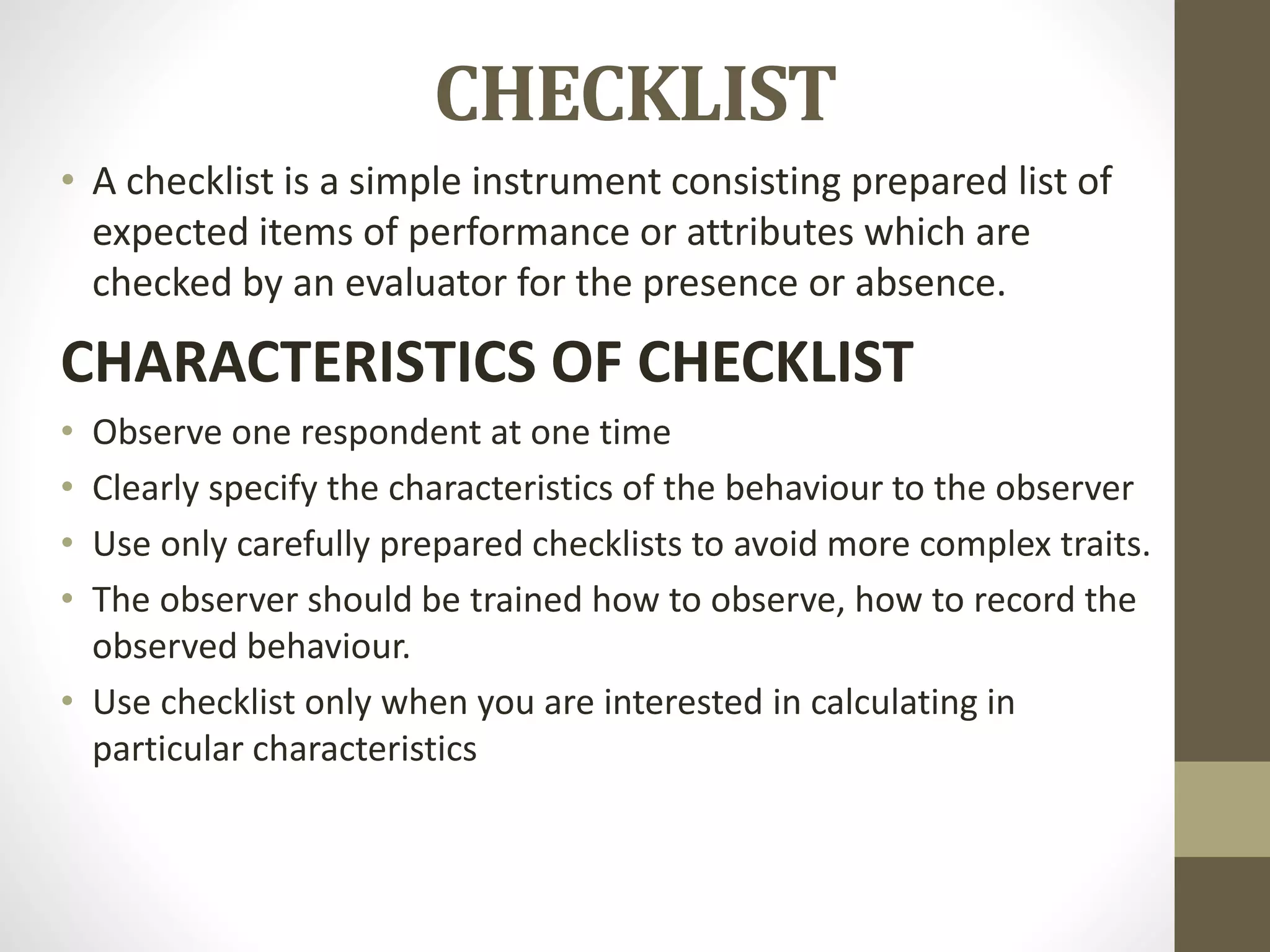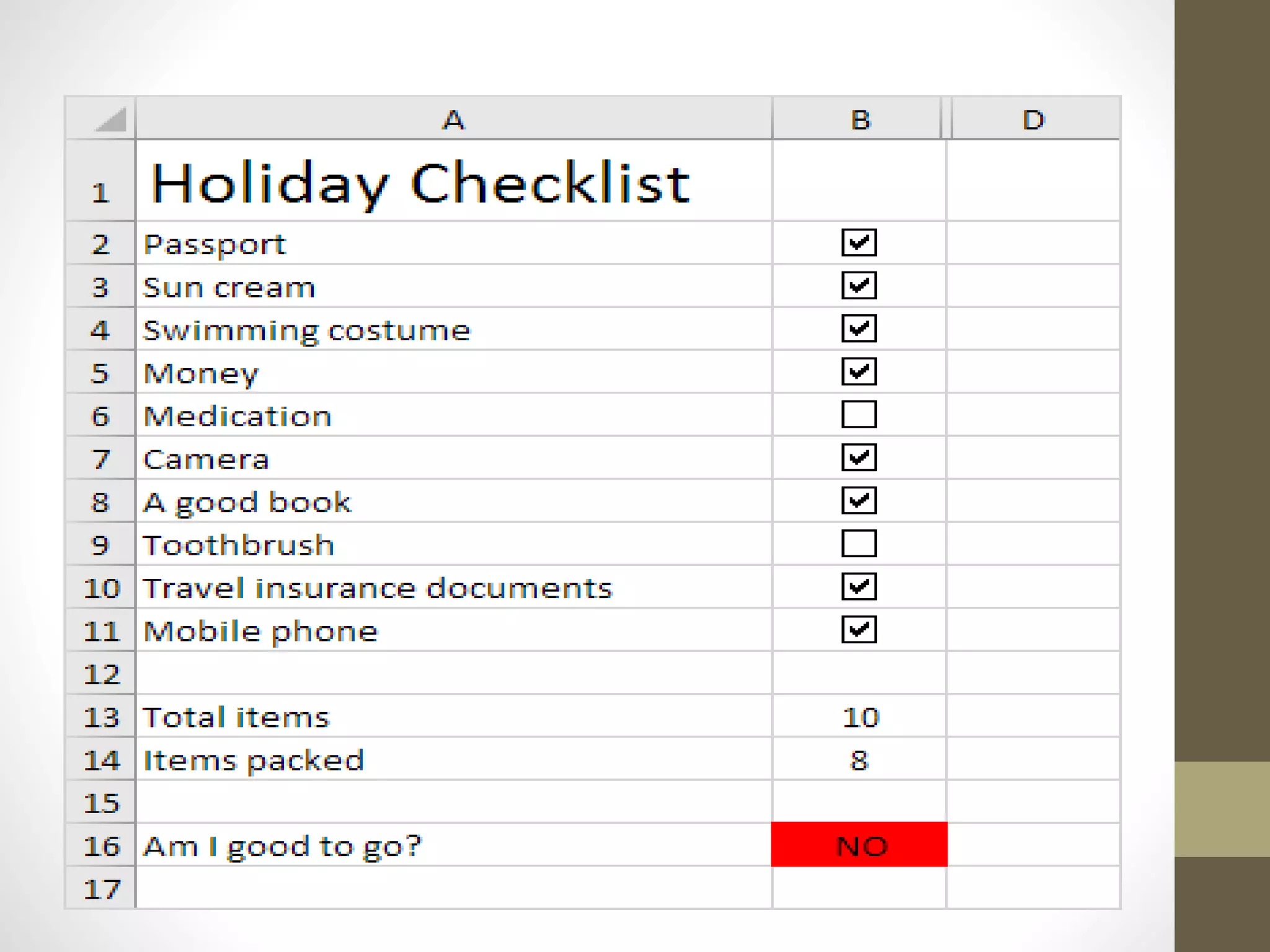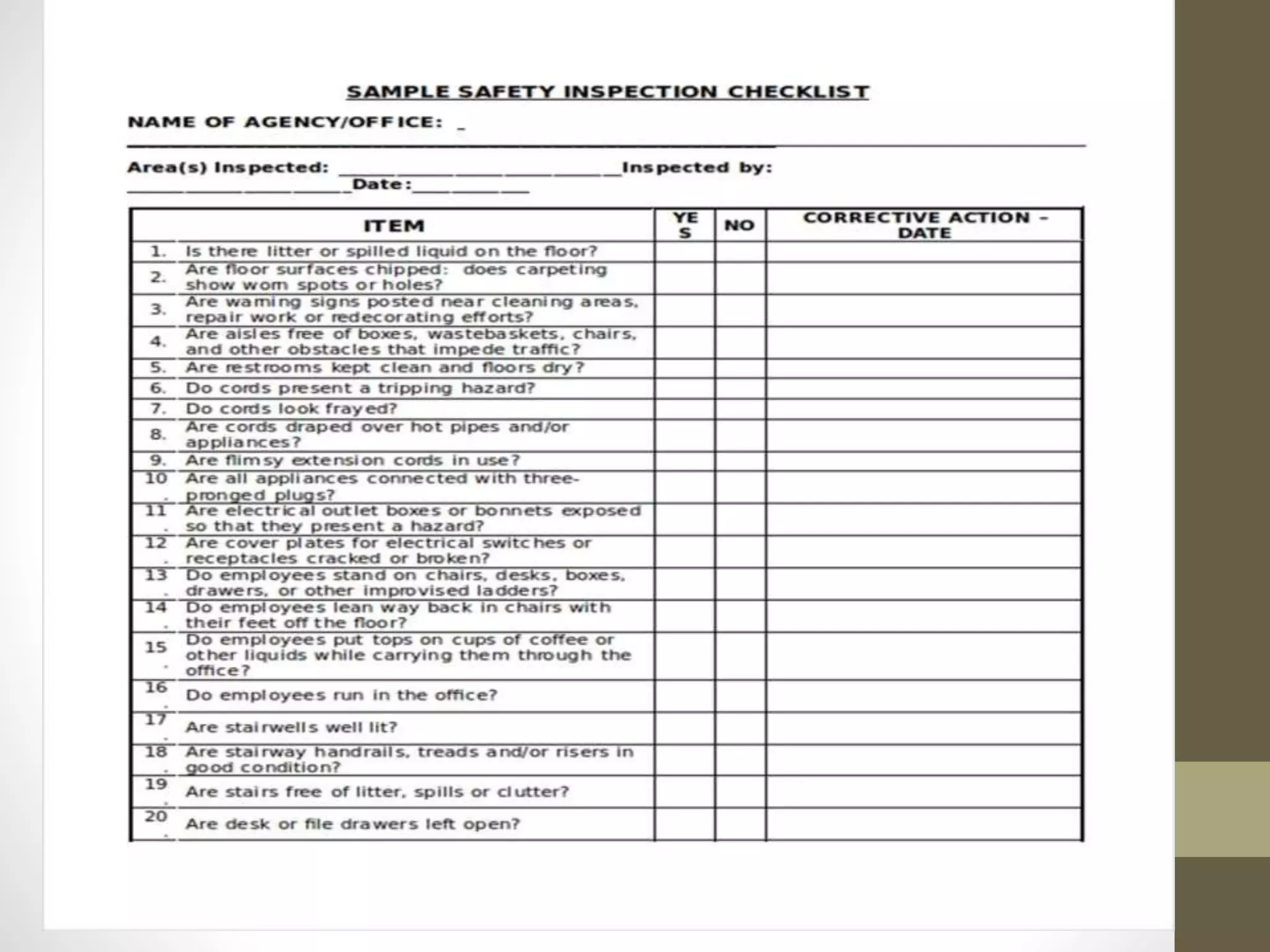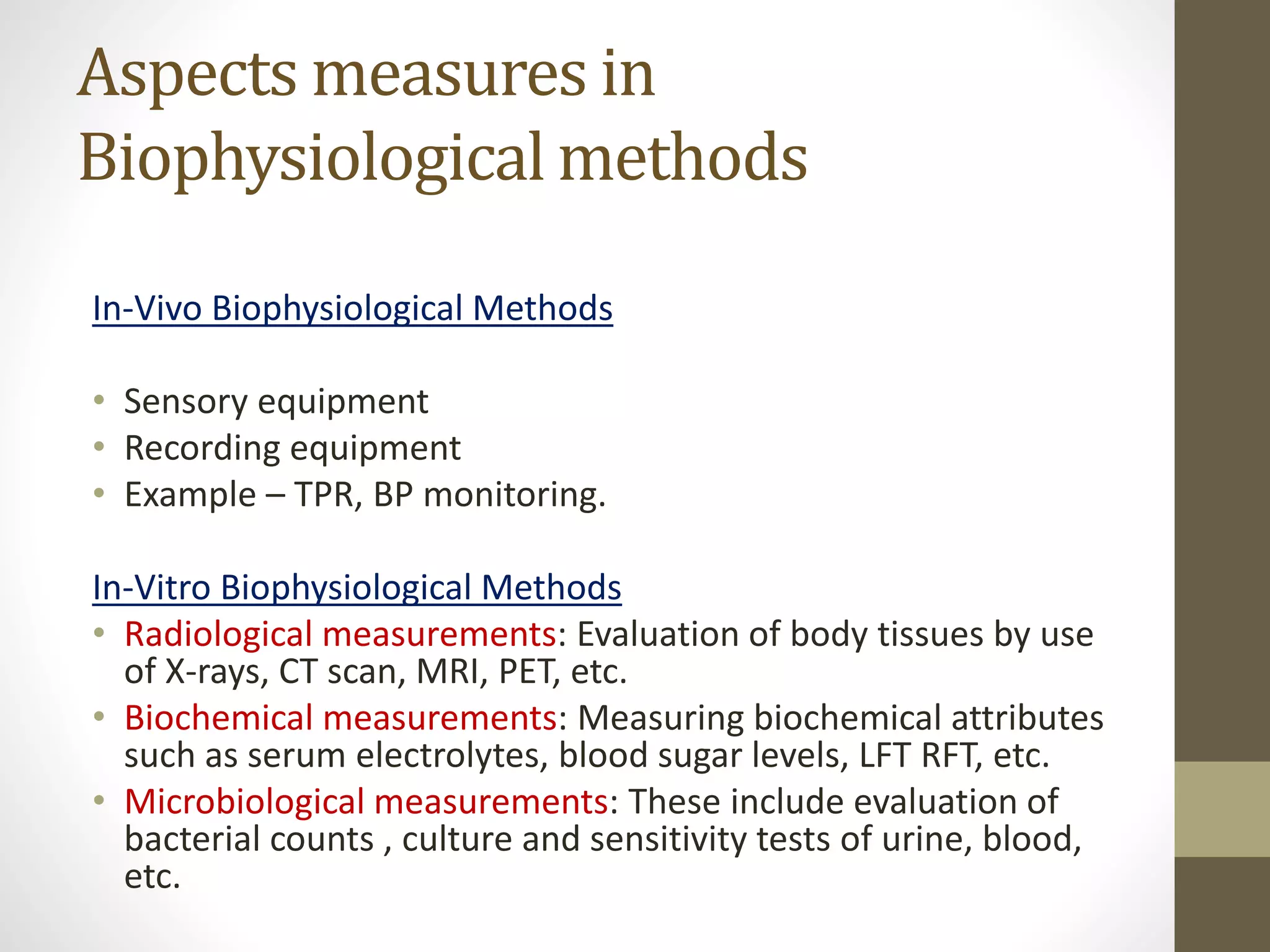This document discusses various tools and methods for data collection. It defines data collection as the process of gathering information from relevant sources to answer research questions and test hypotheses. There are two main sources of data - primary sources where data is directly collected, and secondary sources where data is collected by someone else. Common tools for collecting data include interviews, questionnaires, observations, and various bio-physiological methods. The appropriate method depends on factors like the type of research, sample size, and available resources. Interview and questionnaire-based tools are described in more detail.


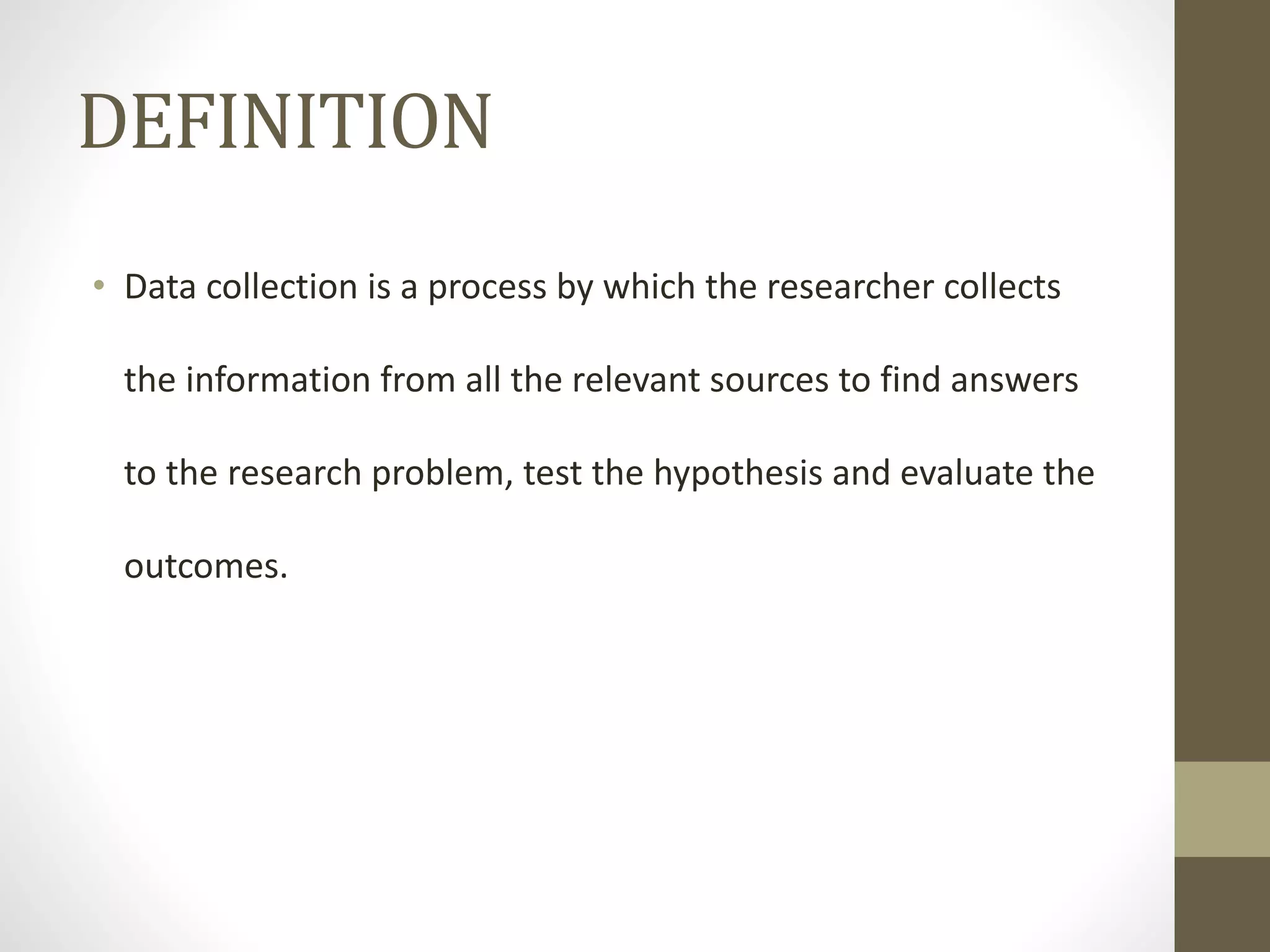

![Sources of data
collection
Primary
sources
People,
Object,
Programme,
Institutions
etc.
Secondary
sources
A. Internal
sources[Private]
- Biographies.
- Diaries.
- Letters.
- Memories.
B. External
sources
[Public]
Published
records
Unpublished
records](https://image.slidesharecdn.com/datacollection-210601051825/75/Data-collection-5-2048.jpg)
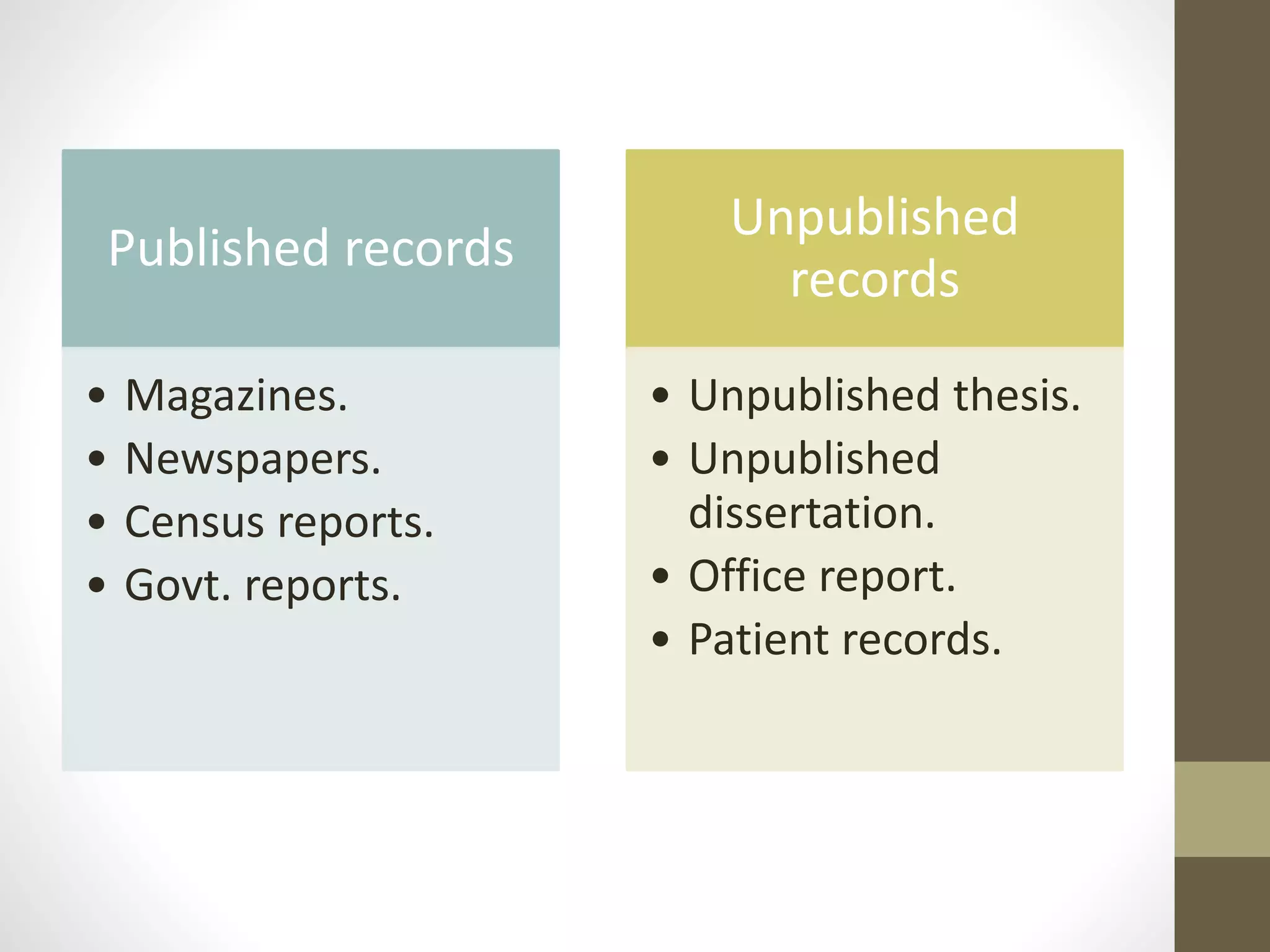
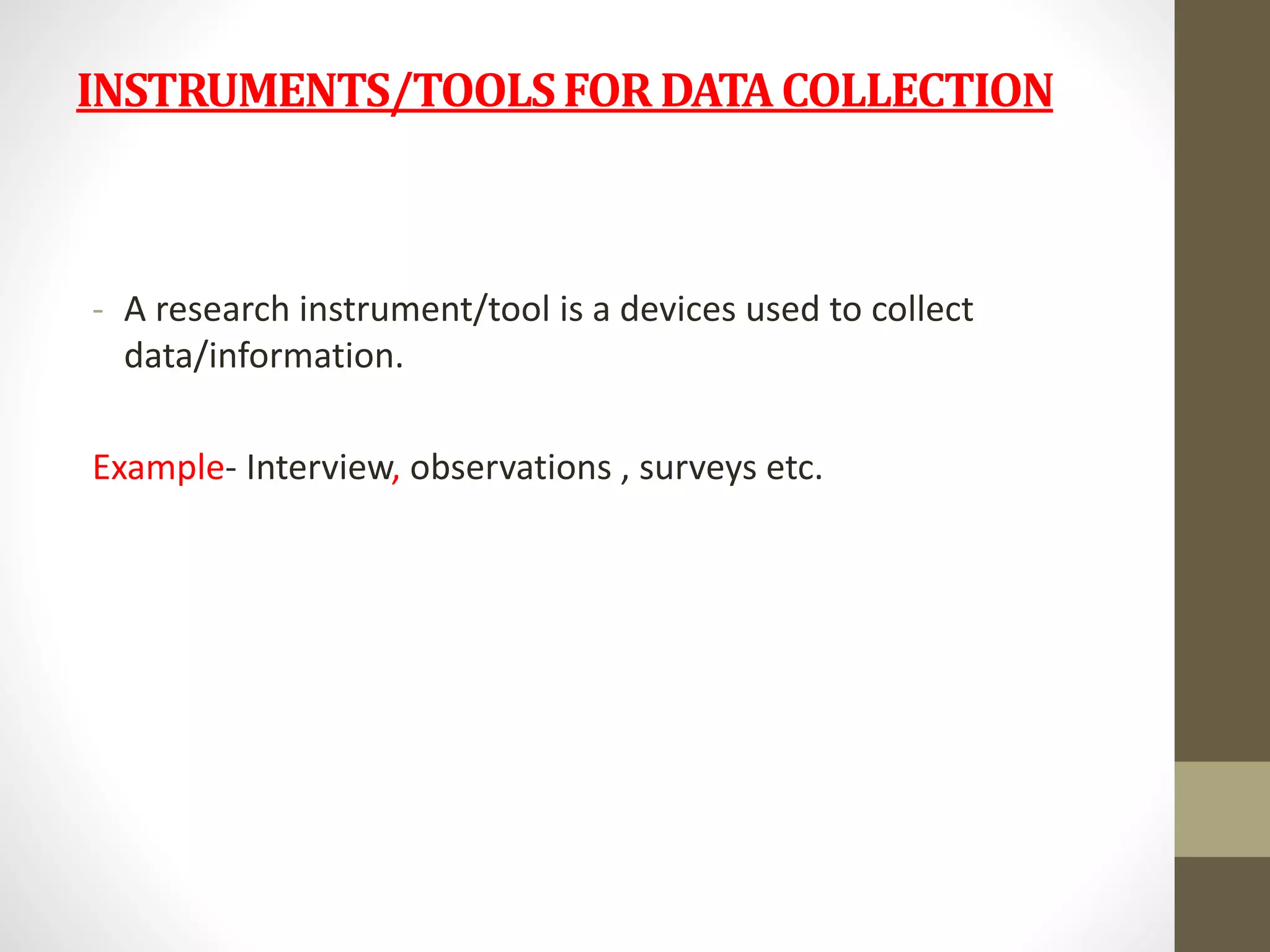
![Method/Technique Tools for data collection
A. Interview a. Interview schedule.
b. Opinionnaire.
B. Questioning [ Self report ] a. Questionnaire.
b. Opinionnaire.
c. Attitude scales/composites scales.
d. Visual analog scale eg. Pain scale
C. Observation a. Rating scales.
b. Checklists.
c. Anecdotes.
d. Video tapes/films.
D. Bio-physiologic methods a. In-vivo bio-physiological
measurements. E.g BP monitored.
b. In-vitro bio-physiological
measurements. E.g Blood test.
Types of methods and tools of data
collection](https://image.slidesharecdn.com/datacollection-210601051825/75/Data-collection-8-2048.jpg)
